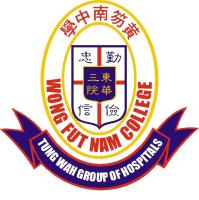| Language Policy |
English is used as the medium of instruction for all subjects except Chinese Language, Chinese History, Putonghua, Citizenship & Social Development and Life & Society. We also stress the importance of enhancing the biliterate & trilingual abilities of students. Language-Across-Curriculum projects are introduced in S.1 & S.2 to achieve mastery of EMI subjects through a comprehensive study of use of the English language. During summer holiday, we provide S.1 English, Chinese, Mathematics bridging program as well as English Day Camp and English Study Tours for students of all levels. |
| Learning and Teaching Strategies |
Implement whole-person education by providing a three-fold curriculum. The formal curriculum aims to help students build a solid foundation of knowledge. The enrichment curriculum consisting of extensive reading, project learning and field trips aims to develop students' self-learning & critical thinking abilities. The life education curriculum includes activities related to life guidance, career planning, values education, national education & environmental education with the aim of cultivating a positive attitude and moral values among students. |
| School-based curriculum |
1. Electives: 3X. Students, based on their interests and academic ability, can choose 3 elective subjects from a total of 12 subjects, including Mathematics Extended Part Module 2.<br> 2. Curriculum highlights: <br>(1) S.1 - S.3: Life and Society helps students to develop an awareness of the ever-changing society through studying various current issues in Personal and social development, resources and economic activities, social systems and citizenship.<br>(2) S.4: The school based OLE curriculum is fostering the whole-person development, preparing students to become life-long learners. It broadens their experience and nurtures positive values and attitudes to further develop their life-long interests and generic skills. |
| Approach to Catering for Learner Diversity |
The Student Support Committee was formed to set system for collection of cases, management of resources and formulate policies to provide special care for students with special learning needs. Related subject teachers will also be informed and relevant counseling services will be suggested. A support group was also set up to design the school-based curriculum for both the gifted children and the children with SEN in order to cater for learner diversity and raise the learning effectiveness. |
| Approach to Integrated Education |
Our school is committed to developing an inclusive culture through the Whole School Approach to support students with SEN. Learning Support Grant provides appropriate and diversified support to these students so as to enhance their learning and adjustment to the school life. A student support team is established, including panel heads of core subjects, the discipline master, the guidance master, the SEN coordinator, the school social worker, the educational psychologist, the speech therapist etc. The team will coordinate and cooperate with other subjects and teams to support these students. Our school provide adequate support for different education needs. For instance, academic support for those students finding difficulties in studies; school-based speech therapy service is organized to offer individual/group training/therapy sessions to students with speech and language impairment; social skills training is organized for those students with autism; career counselling services are provided for students with special educational needs. Examination Accommodation is offered to students with SEN. Individual Education Plan is established via meeting with different professionals in order to cater students in need. Our school also treasures home-school cooperation by establishing regular communication channels to facilitate parents’ participation in the formulation of support strategies for students with SEN. |
| Education Support for Non-Chinese Speaking (NCS) Students |
|
| Home-School Co-operation |
The Parent-Teacher Association has been set up to promote close liaison and collaboration between parents and teachers, thereby improving the transparency of the school, ensuring the well-being of students and cultivating harmonious parent-child and teacher-student relationships. |
| School Ethos |
1. Our school discipline is pure and simple. Students are self-disciplined, and well-educated. They learn to respect others and are eager to serve the community.<br>2. The Discipline Committee, Counselling Committee, SEN Committee, school social worker, educational psychologist and class teachers collaborate in organizing activities and following up cases to facilitate students' healthy development.<br>3. Students' Union, Prefects Team, Peer Counselling Team are set up to cultivate students' leadership qualities and spirit of service. |
| School Development Plan |
1. To promote students’ learning abilities and skills to meet the needs of the future world.<br>2. To nurture positive values, proactive attitudes towards life and a spirit of service in students.<br>3. To pass on our school culture and experience. |
| Teacher Professional Training and Development |
Theme-based staff development seminars are organized to promote Values Education as well as e-learning and autonomous learning. Peer exchanges are encouraged among teachers to facilitate teaching pedagogies for the course. Besides, teachers are encouraged to continue further SEN training to meet EDB teacher training requirements for Integrated Education policies. |
| Life-wide Learning |
Our school provides students with a wide range of extra-curricular activities where they can explore their potential and enhance their leadership and organizational skills. Students can form cabinets in the annual Student Union Election, and all other students can take part in voting. The Student Union organizes different activities throughout the year, such as Fun Fair and Union Festival, fully illustrating the spirit of autonomy. The four Houses, namely RED, YELLOW, BLUE and GREEN, also hold different competitions to foster the spirit of cooperation amongst students. <br>There are more than 30 clubs and groups which promote various activities in different areas. |
